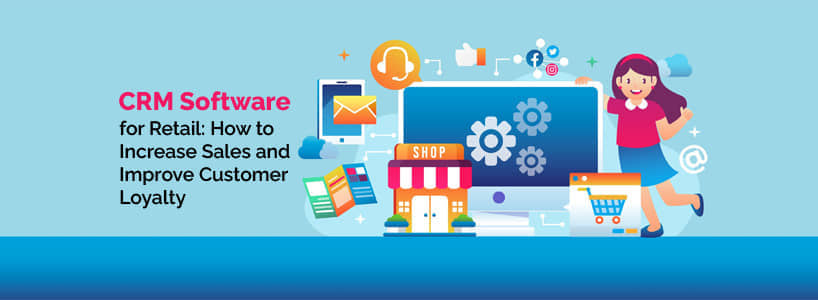In today's competitive retail landscape, building strong customer relationships is paramount. A robust Customer Relationship Management (CRM) system can be a game-changer for retailers, enabling them to increase sales, improve customer loyalty, and drive business growth.
What is CRM Software?
CRM software is a tool that helps businesses manage and analyze customer interactions and data throughout the customer lifecycle. 1 By centralizing customer information, retailers can gain valuable insights into customer behavior, preferences, and purchase history.
How CRM Software Can Benefit Retailers
1. Enhanced Customer Experience:
- Personalized Interactions: CRM software allows retailers to tailor their interactions with customers based on their individual preferences and past purchases. This personalized approach can significantly enhance the customer experience.
- Efficient Customer Support: By quickly accessing customer information, retailers can provide prompt and effective Customer Support, resolving issues efficiently and building customer trust.
2. Increased Sales:
- Targeted Marketing Campaigns: CRM software enables retailers to identify high-value customers and target them with tailored marketing campaigns. This precision marketing can drive increased sales and revenue.
- Upselling and Cross-Selling Opportunities: By analyzing customer purchase history, retailers can identify opportunities to upsell higher-value products or cross-sell complementary items.
3. Improved Customer Loyalty:
- Loyalty Programs: CRM software can help retailers implement effective loyalty programs, rewarding customers for their repeat business and encouraging them to become brand advocates.
- Proactive Customer Engagement: By tracking customer milestones and preferences, retailers can proactively engage with customers through personalized offers, birthday greetings, or special promotions.
4. Data-Driven Decision Making:
- Customer Insights: CRM software provides valuable insights into customer behavior, allowing retailers to make data-driven decisions about product assortment, pricing strategies, and marketing campaigns.
- Performance Tracking: By tracking key metrics like customer acquisition cost, customer lifetime value, and return on investment, retailers can measure the effectiveness of their CRM initiatives.
Key Features of a Good Retail CRM Software
- Customer Data Management: Centralized storage and easy access to customer information.
- Sales Force Automation: Tools to manage sales pipelines, track deals, and automate sales processes.
- Marketing Automation: Capabilities for creating and executing targeted marketing campaigns.
- Customer Service Tools: Features for managing customer support tickets, tracking interactions, and resolving issues.
- Analytics and Reporting: Tools to analyze customer data and generate insightful reports.
- Integration with Other Systems: Seamless integration with point-of-sale (POS) systems, e-commerce platforms, and other business tools.
By investing in a robust CRM software solution, retailers can transform their customer relationships, drive sales growth, and build a loyal customer base.
